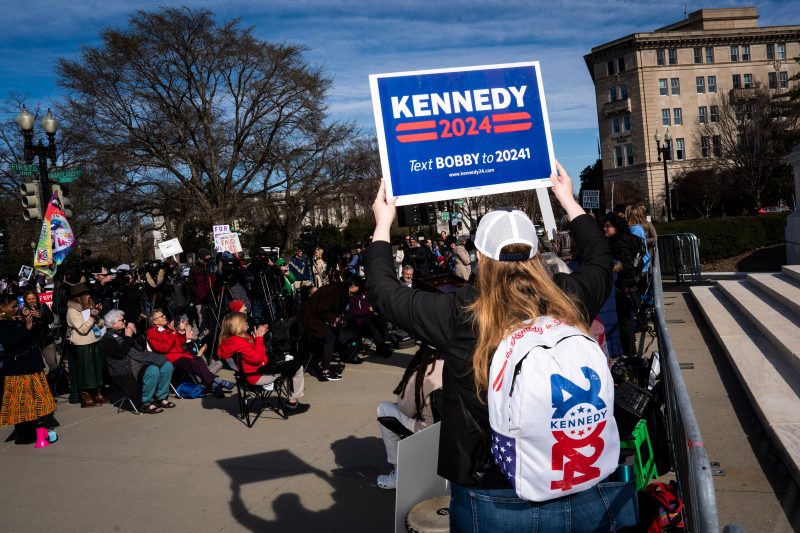
Bipartisan Disdain: RFK Jr. Supporters Unite Against Biden and Trump
The political landscape in the United States has always been a dynamic and multifaceted arena where various ideologies clash and overlapping interests intersect. In 2020, the presidential election brought to light the stark divisions within the American populace, with supporters of former President Donald Trump and President Joe Biden representing the two polar ends of the spectrum. However, within this polarized atmosphere, a group of voters emerged who found themselves disillusioned with both major political parties – the RFK Jr. voters.
RFK Jr. voters, as dubbed by political analysts, span a wide range of the political spectrum, often defying traditional categorizations. While they may hold differing views on social, economic, and environmental issues, they find common ground in their shared dissatisfaction with the leadership offered by both the Democratic and Republican parties.
The emergence of RFK Jr. voters can be attributed to a variety of factors, including a rejection of the status quo, a desire for substantive change, and a disillusionment with mainstream politics. Many of these voters feel alienated by the increasingly partisan nature of American politics, where compromise and bipartisanship seem like relics of the past.
Despite their disparate backgrounds and beliefs, RFK Jr. voters have found some unifying themes in their critiques of the Biden and Trump administrations. One prevailing sentiment among RFK Jr. voters is a concern over civil liberties and government overreach, particularly in the context of issues such as surveillance, privacy, and individual freedoms. Many of these voters also express skepticism towards the growing influence of corporate interests in politics and the erosion of democratic norms.
Additionally, RFK Jr. voters often highlight the need for a more ethical and transparent government, free from the corruption and cronyism that has plagued American politics in recent years. They long for a return to a political landscape where public servants prioritize the needs of the people over partisan agendas or personal gain.
While RFK Jr. voters may not constitute a monolithic bloc with a unified agenda, their emergence signifies a broader trend of disillusionment and discontent with the current state of American politics. As the country grapples with issues ranging from economic inequality to climate change, the voices of these voters serve as a reminder of the importance of grassroots activism and civic engagement in shaping the future of the nation.
In conclusion, the rise of RFK Jr. voters reflects a growing sentiment of frustration and disenchantment with the traditional two-party system in the United States. As these voters continue to advocate for change and push for a more responsive and accountable government, their impact on the political landscape should not be underestimated. Only time will tell how their influence will shape the future of American politics and governance.
